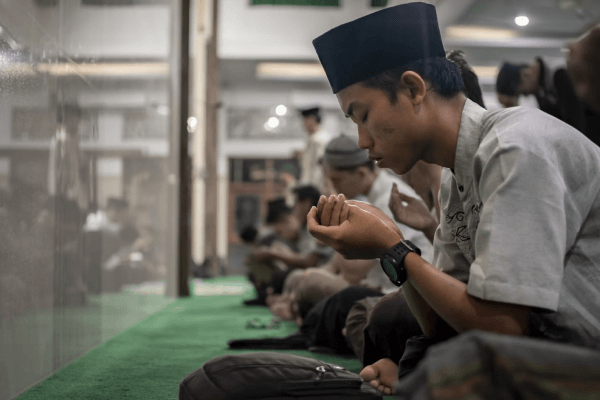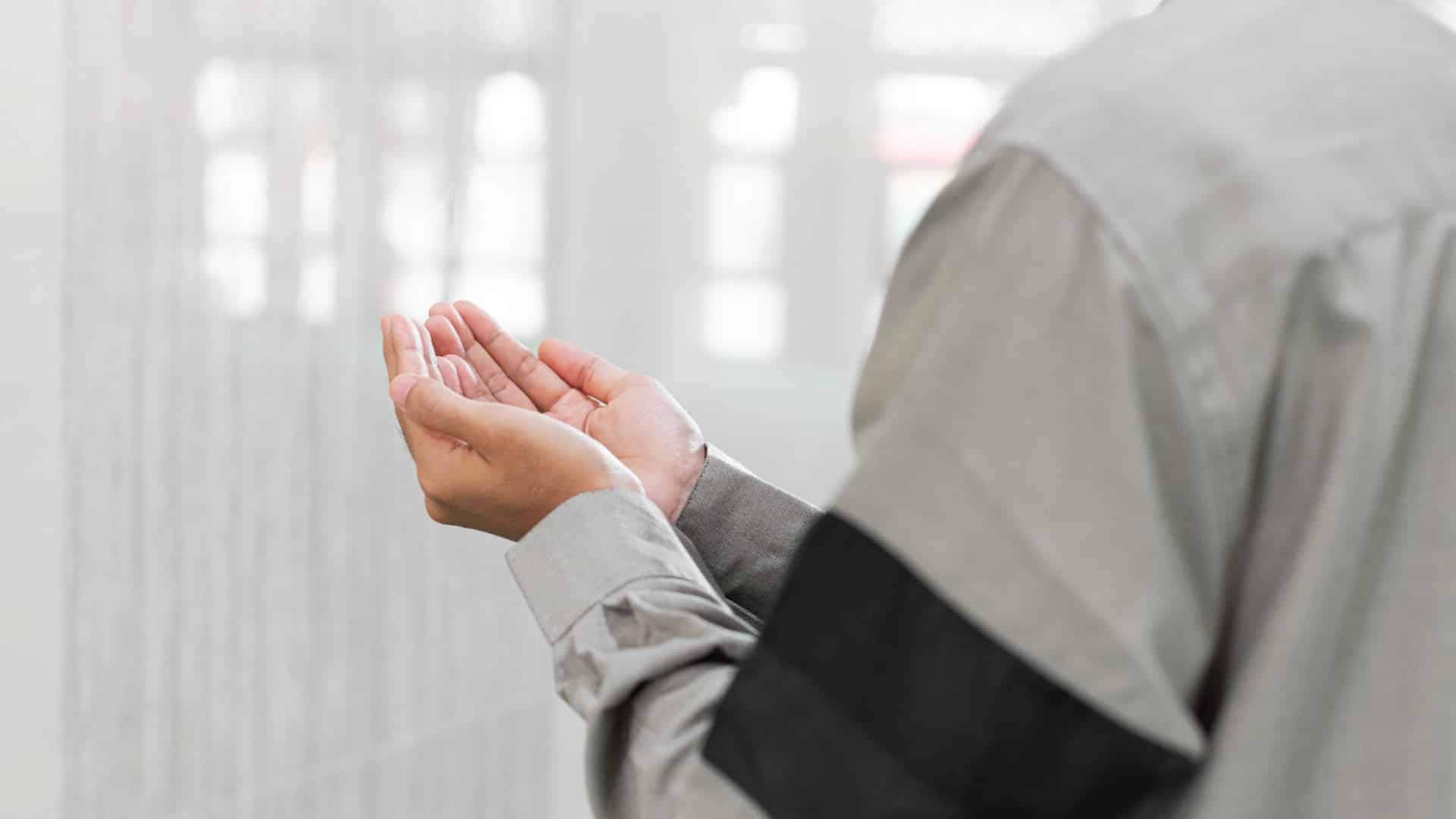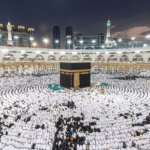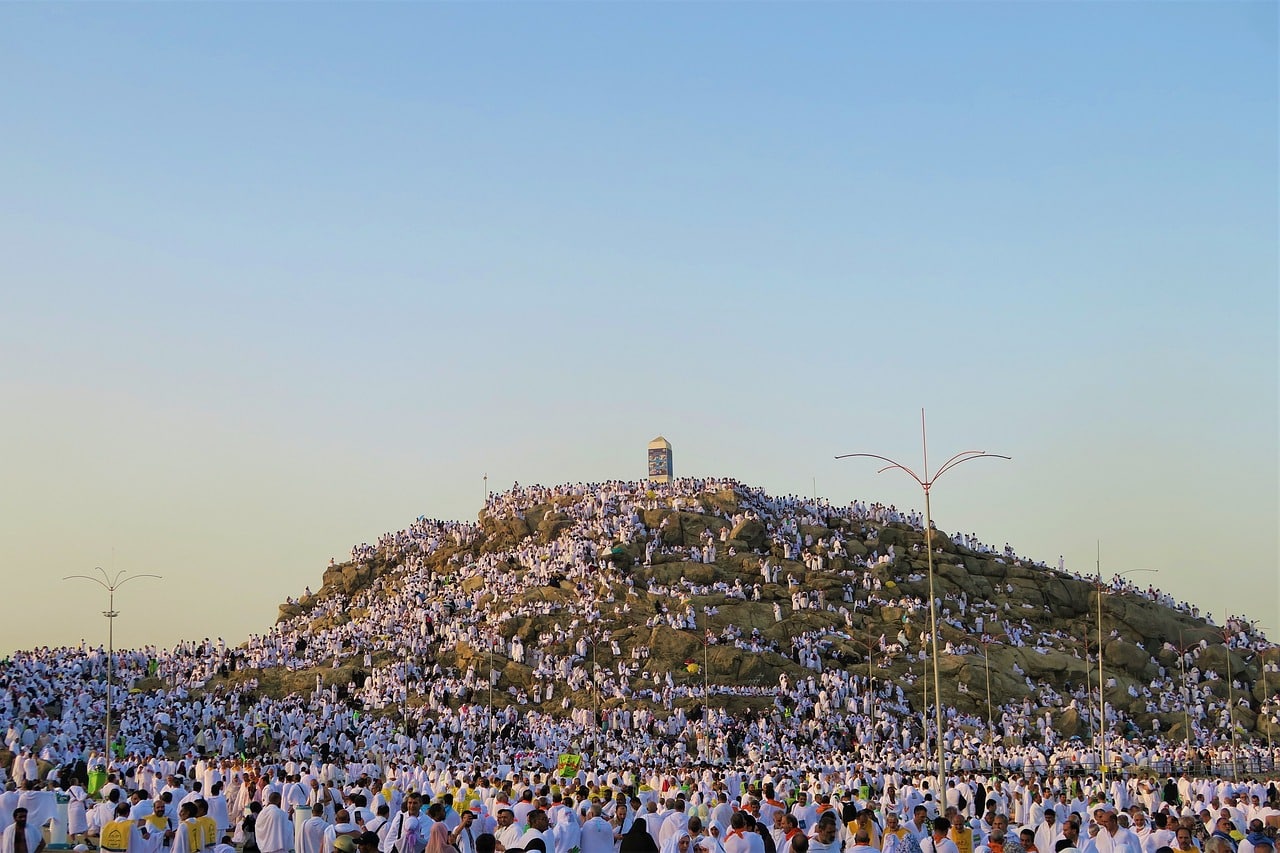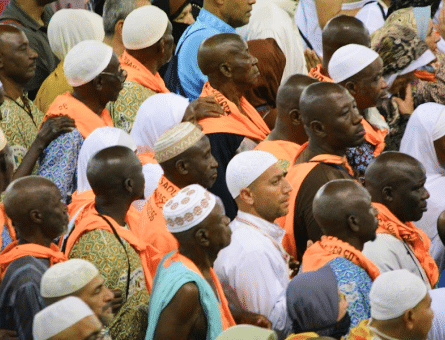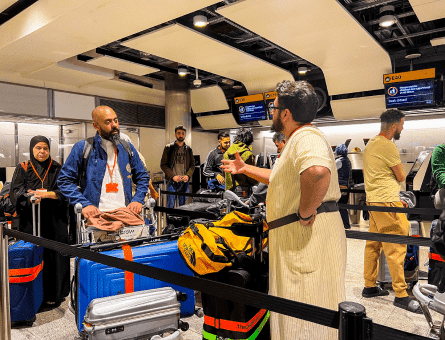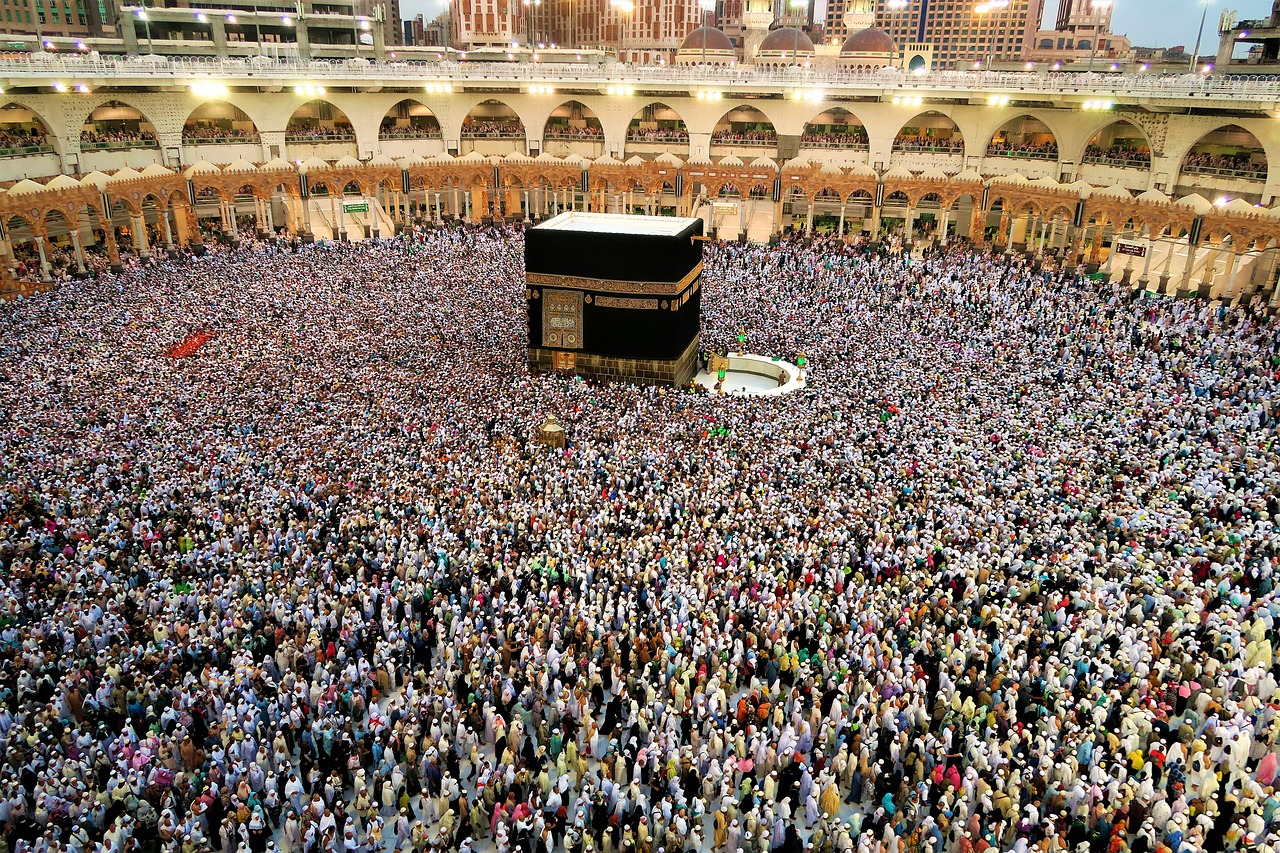Life After Umrah – 7 Things To Do When You Are Back From Umrah
Umrah is one of the most coveted journeys that every Muslim wishes to partake in. It’s a spiritual guide that acknowledges Allah سُبْحَانَهُ وَتَعَالَى (Glorious and Exalted is He) and allows you to wash off your past, seek forgiveness for your sins, and become close to Allah.
Life after Umrah will be a change unlike you have ever experienced. Know this – When Allah (SWT) wills your sacred journey, no no one can prevent you from embarking.
This path to righteousness will give you a new life, deepen your faith, help you learn good habits, and strengthen your belief in Islam.
Even before you have reached Mecca, you will repent for all the wrongs you ever did. This realization will help you gain the infinite blessings of Allah and come back home completely transformed.
Does Allah (SWT) Invite You to Umrah?
They say that the call of Umrah comes uninvited and is a sacred sign that Allah has granted your wish to praise Him and perform the pilgrimage. Without His will, even a leaf does not have the permission to move.
Having said that, the invite is not physical. Once you make the intention, if Allah wants, you will encounter no hurdles in the planning.
Does Umrah Change Your Life?

Undoubtedly, the Umrah journey is a transformative experience for many people. It is often referred to as the “lesser pilgrimage” when compared to Hajj, millions of Muslims embark on it each year.
Umrah comprises several rituals that symbolize devotion and faith. However, it is in the personal experiences the life-changing aspects of this journey come to light.
After Umrah, cutting hair is obligatory for men. One of the most significant ways Umrah changes a person is through its spiritual awakening. Just the act of traveling to Mecca is deeply emotional.
It allows you to detach from your daily routine and immerse yourself in an environment where everything is about worshipping the Almighty. This break from the mundane often leads to a stronger connection with one’s faith.
Does Umrah Erase All Previous Sins?
“The performance of Umrah is expiation for the sins committed between it and the previous ones.”
(Al-Bukhari)
Umrah expiates all types of sins, minor and major, but is not a way to erase them. Allah’s forgiveness of sins is contingent upon certain conditions, which include:
- Pure Intention: Umrah must be performed with sincerity. The primary motivation for undertaking it should be about seeking Allah’s pleasure and forgiveness rather than merely erasing one’s sins.
- Performing it Correctly: It’s essential to perform this sacred journey exactly the way Prophet Mohammad (Peace Be Upon Him) mentioned in the Sunnah
Does Umrah Purify the Soul?
“Follow up the Hajj and Umrah because they certainly remove poverty and sins as fire separates the impurities from iron, gold, and silver.”
Abd Allāh ibn Masʿūd (Companion of Prophet Mohammad (PBUH))
We all make mistakes. The willpower to make the right decision in the face of temptation is a test from Allah that He puts all his slaves through.
This is why Umrah is the chance to not just purify your body but your soul too. It allows you to unburden yourself and make a fresh start. It is believed that Umrah makes your soul as pure as a newborn baby.
Allah promises great rewards and the highest place in Jannah to Umrah pilgrims who perform the rituals wholeheartedly.

Rewards for Performing Umrah
Umrah allows Muslims to draw closer to Allah. The act of worship, the prayers, and the profound sense of inner peace experienced during the pilgrimage enhance your connection with the Divine.
The guests of Allah are three: Ghazi (the warrior fighting in Jihad), Mu’tamir (the pilgrim performing Umrah), and Hajji (the pilgrim performing Hajj).
Allah rewards them for their efforts and intentions. Let’s take a look at the benefits of Umrah:
- Umrah Removes Poverty
The Messenger (SAW) of Allah (SWT) send,
“Perform Hajj and Umrah consecutively, for they remove poverty and sin as bellows remove impurity from iron.”
Ibn e Abbas
Allah gives to those in need, and performing Hajj and Umrah consecutively removes poverty and sin from ones life.
- Expiates Sins
Imagine carrying the guilt of all your sins and feeling light as air after doing Tawaf. That’s what Umrah offers! It allows you to atone for your mistakes and make a promise to yourself that you will not repeat them or commit any new ones. This ensures you maintain your connection with Allah.
- Is Equal to Performing Jihad
“Whoever leaves his home solely for the purpose of Hajj or Umrah and he dies, nothing will be presented to him nor will he have any liability on the Day of Judgment, and it will be said to him, enter into Jannah.”
Recounted by Ayesha (RA) (The Wife of Prophet Mohammad (PBUH)
- Strengthens Eman
A believer’s deeds and recognition of faith in religious aspects is called Eman. When you follow the rituals of Umrah, your Eman becomes stronger.
Since every step you take is with purpose, it comes with the satisfaction that you are getting closer to Allah.
How to Live Life After Umrah – Things to Do When Returning from Umrah
Coming back from Umrah is a momentous occasion. It marks the completion of a journey that brings home a new you. Here are a few things you should do after returning from Umrah:
Express Gratitude
Muslims believe that the opportunity to perform Umrah is a blessing from Allah, and showing gratitude is a fundamental aspect of faith in Islam. So, raise your hands in Dua and thank Him for giving you this chance.
Encourage Others to Pray
“Whoever intercedes for a good cause will have a share in the reward, and whoever intercedes for an evil cause will have a share in the burden. And Allah is Watchful over all things.”
(Quran, 2:85)
The importance of prayers in Islam is such that the more you guide your elders and youngsters to answer the call of Azaan, the more your good deeds will rise.
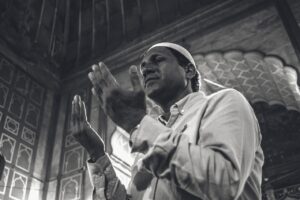
Let Go of Bad Habits
One of the biggest things not to do during Umrah is indulge in activities that are frowned upon.
Bad habits often lead to mistakes that might make you commit major sins. A good Muslim not only lives by the word of Prophet Mohammad (PBUH) but also adopts good habits to lead a content life. So, reflect on the changes you want to make and set spiritual goals.
Start Everything with the Name of Allah
Say الله أكبر (Allah is Greater) or بِسْمِ ٱللَّٰهِ ٱلرَّحْمَٰنِ ٱلرَّحِيمِ (In the name of Good, the most Gracious, the most Merciful) before doing anything. These simple phrases have immense power to help solve problems, ease worries, and remove depression after Umrah.
Do Acts of Charity

During Umrah, Muslims are encouraged to perform acts of charity, both big and small. Carry this spirit of giving back with you when you return. Consider donating to those in need and participating in community service. Such kindness is highly regarded in Islam.
Maintain Spiritual Practices
The spiritual acts you took part in during Umrah do not end in Mecca. Continue with daily prayers, recitation of the Quran, and other acts of worship. Create a routine that includes Dhikr (remembrance of Allah) and strive to perform Tahajjud (night prayers).
Share Your Experience
If you are performing Umrah for the first time, you might not know all the rituals that must be performed.
Browse the internet for information and seek guidance from those who have been on this sacred journey. Share your experience to inspire others and ask them to keep the chain going. Learn as much as you can about Islam in your spare time.
What to Say When Someone Comes Back from Umrah?
When a pilgrim returns from Umrah, there are specific ways to convey your happiness for their safe return. Here’s what you should say:
- Umrah Mubarak! A greeting that congratulates the pilgrim on his efforts of doing Umrah.
- May Allah Accept Your Umrah: Satisfactory words that make the pilgrim feel blessed.
- Pray that Allah Forgives Me for My Mistakes Too: A pilgrim returning from Umrah has already been forgiven by Allah. They are closer to the Almighty, and their Dua will carry more power.
Verses from the Quran Regarding Umrah

The word Umrah has been mentioned thrice in the Quran.
إِنَّ ٱلصَّفَا وَٱلۡمَرۡوَةَ مِن شَعَآئِرِ ٱللَّهِۖ فَمَنۡ حَجَّ ٱلۡبَيۡتَ أَوِ ٱعۡتَمَرَ فَلَا جُنَاحَ عَلَيۡهِ أَن يَطَّوَّفَ بِهِمَاۚ وَمَن تَطَوَّعَ خَيۡرٗا۞ فَإِنَّ ٱللَّهَ شَاكِرٌ عَلِيمٌ
“Verily! As-Safa and Al-Marwah are of the Symbols of Allah. So, it is not a sin on him who perform Hajj or Umrah of the House to perform the going (Tawaf) between them. And whoever does good voluntarily, then verily, Allah is All-Recognizer, All-Knower.”
(2:158)
وَأَتِمُّوا۟ ٱلْحَجَّ وَٱلْعُمْرَةَ لِلَّهِ ۚ فَإِنْ أُحْصِرْتُمْ فَمَا ٱسْتَيْسَرَ مِنَ ٱلْهَدْىِ ۖ وَلَا تَحْلِقُوا۟ رُءُوسَكُمْ حَتَّىٰ يَبْلُغَ ٱلْهَدْىُ مَحِلَّهُۥ ۚ فَمَن كَانَ مِنكُم مَّرِيضًا أَوْ بِهِۦٓ أَذًۭى مِّن رَّأْسِهِۦ فَفِدْيَةٌۭ مِّن صِيَامٍ أَوْ صَدَقَةٍ أَوْ نُسُكٍۢ ۚ فَإِذَآ أَمِنتُمْ فَمَن تَمَتَّعَ بِٱلْعُمْرَةِ إِلَى ٱلْحَجِّ فَمَا ٱسْتَيْسَرَ مِنَ ٱلْهَدْىِ ۚ فَمَن لَّمْ يَجِدْ فَصِيَامُ ثَلَـٰثَةِ أَيَّامٍۢ فِى ٱلْحَجِّ وَسَبْعَةٍ إِذَا رَجَعْتُمْ ۗ تِلْكَ عَشَرَةٌۭ كَامِلَةٌۭ ۗ ذَٰلِكَ لِمَن لَّمْ يَكُنْ أَهْلُهُۥ حَاضِرِى ٱلْمَسْجِدِ ٱلْحَرَامِ ۚ وَٱتَّقُوا۟ ٱللَّهَ وَٱعْلَمُوٓا۟ أَنَّ ٱللَّهَ شَدِيدُ ٱلْعِقَابِ۞
“And complete the Hajj and Umrah for Allāh. But if you are prevented, then [offer] what can be obtained with ease of sacrificial animals. And do not shave your head until the sacrificial animal has reached its place of slaughter. And whoever among you is ill or has an ailment of the head [making shaving necessary must offer] a ransom of fasting [three days] or charity or sacrifice. And when you are secure, then whoever performs Umrah [during the Hajj months] followed by Hajj [offers] what can be obtained with ease of sacrificial animals.”
(2:196)
Hadiths on Performing Umrah
“(The performance of) Umrah is an expiation for the sins committed (between it and the previous one). And the reward of Hajj Mabrur (the one accepted by Allah) is nothing except Paradise.”
Abu Huraira
“Umrah in Ramadan is equivalent to Hajj – or Hajj with Prophet Mohammad.”
Abdullāh ibn ‘Abbās
“The Prophet performed ‘Umra when the pagans made him return, and Umra of al-Hudaibiya (the next year), and another Umrah in Dhi-l-Qa’da, and another ‘Umra in combination with his Hajj.”
Qatada
“I heard the Messenger of Allah (peace and blessings of Allah be upon him) say: “Touching them both [the Black Stone and al-Rukn al-Yamani] is an expiation for sins.””
Ibn ‘Umar
Summary – Life After Umrah
While the impact of Umrah on a person’s life is profound, its ajar (reward) lies in how you choose to live life after. Returning to the routines and demands of everyday life can be a jarring experience after the spiritual serenity you experienced in Mecca and Madina. The challenge lies in maintaining a heightened level of faith in the face of worldly distractions.
Life after Umrah should be led with patience, humility, and gratitude. The experience of standing before the Kaaba, the house of Allah in Saudi Arabia, will forever be etched in your heart, serving as a reminder of your purpose in life
Through His Names
New course with
Ustadh Shabbir Hassan




